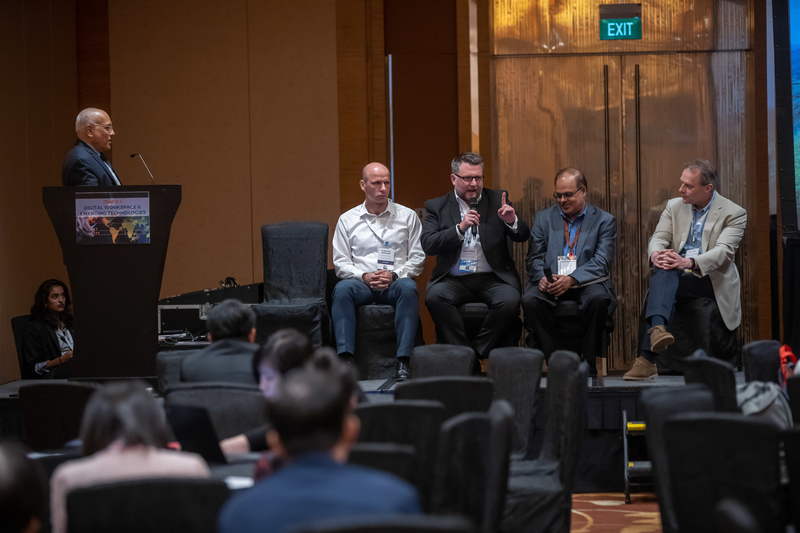
On 16th May 2019, over 500 government officials and industry leaders across the world gathered for a discussion on digital transformation in the public sector and financial services institutions (FSI). Taking place at Marina Bay Sands Singapore, this year marks the 5th Annual Singapore OpenGov Leadership Forum.
The day was filled with stimulating round-table discussions as well as innovative gamification methods, engaging panels and insightful talks by local and international leaders in public sector ICT.
The day was divided into 2 major session. The morning plenary had focused talks from international speakers, , four rounds of OpenGov Gamification Table (OGT) discussions and a panel. Coverage of the Keynote Presentations can be found here.
The post-plenary afternoon session has delegates separate in one of four tracks of their choosing. Coverage of Track 1, Track 2 and Track 3 can be found by clicking on the individual tracks.
Track 4: Digital Workspace & Emerging Technologies
The Digital Workspace & Emerging Technologies track focused what the work environments of the future would look like and explored the latest tech on the horizon.
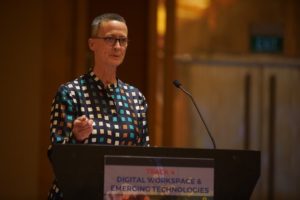
Gertrud Ingestad, Director-General at the European Commission kick-started the session with her presentation on the future of technology and its impact on leaders and workers.
Her premise was with digital transformation comes a new generation of workers. These workers are going to be increasingly engaged in more blended-work than before. The blending is a mix of work-private life as well as human-tech interaction.
This blurring boundary between work and private life calls for a new framework that allows employees to manage their work at their own convenience.
Hence, AI comes into play to understand the needs of workers and predict the future of legislation in a paper-less era.
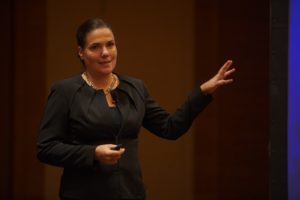
Dragana Beara, Portfolio Messaging Director at Dell Technologies, discussed the role of technology in enabling businesses and how corporations can maximise their value in the workplace.
Using Domino’s Pizza as an example, she reinforced the idea that IoT can empower customers and enable them to reach out in many ways.
Investing in predictive maintenance can enhance efficiency in production and identify faults in the process, thereby boosting productivity.
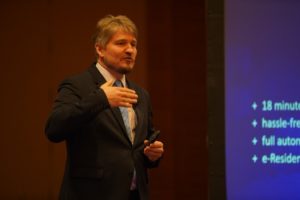
Andrus Kaarelson, Director of State Information System at the Information System Authority of the Republic of Estonia, presented a framework on how citizens should engage with their government.
Every Estonian citizen has an electronic ID card, allowing personal data to be accessed, signed and managed from banking to digital prescriptions and more.
This integrated ID allows access to a wide range of services and activities. It saves valuable time and enables processes to be streamlined.
In sharing the Estonian journey, he was showing how other countries could implement this framework.
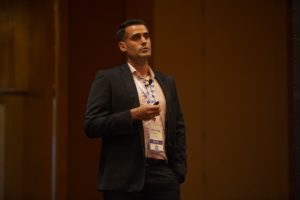
Marouen Zelleg, Regional Sales Manager at OutSystems, discussed the never-ending pressure faced by IT corporations to consistently keep up with the evolving digital world.
With soaring customer expectations, governments are struggling to satisfy their citizens. The solution is to implement AI to leverage the power of an Agile framework and accelerate the journey of digitalisation.
Additionally, keaders must be ready to adapt and cater to a wide range of customers’ needs. Leaders need to progress from the old world and enter the new world to cater to the modern generation and excel in the digital era.
He emphasised the value of experienced workers, who are empowered with the knowledge of what they are doing and how they are contributing to the overall company.
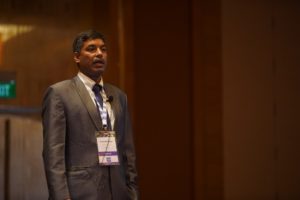
Pramod Kumar, Business Head at Newgen Software, directed the audience’s focus to the pivotal role of employees in ensuring customer satisfaction.
To deliver exceptional customer service, organisations need to expand their operational capacity by using AI to decrease the mundanity of work.
Organisations should aim to provide an intuitive, effective and consistent experience through digital devices, applications and workspaces.
This will allow the workforce sovereignty over their time management, hence achieving worker-driven automation.

Nana Liu, Assistant Professor at the John Hopcroft Centre for Computer Science at Shanghai Jiao Tong University, gave a brief introduction on quantum computation and its future.
Quantum computing is an entirely new paradigm for computing, and its power goes beyond what classical computing can achieve.
She is convinced that the digital landscape and, consequently the future workforce, will be hugely impacted by quantum computing.
While there has yet to be a concrete application of quantum computing in the community, this opens doors for organisations to implement this new technology in the future.
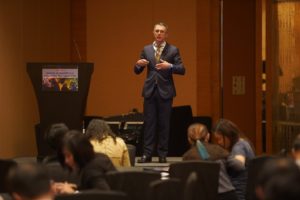
Leonel Da Costa, Sales Managing Director at Kodak Alaris, presented on digitalisation as the foundation for a smart organisation.
He shared a national project carried out by China, where AI was used to extract information and process data to deliver a more comprehensive report.
While the roadmap to digital transformation is constantly evolving, there remains a need for businesses to implement a platform that allows them to save upfront costs, choose suitable hardware, and offer services that fit the needs of their customers.
AI is one of the platforms that will serve this function.
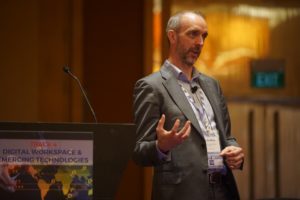
John Baddiley, Head of Technology Strategy and Architecture at the Bank of New Zealand, underlined the growing need for firms to get to know their customers.
This is becomes more essential in a world where traditional methods are no longer sufficient to keep up with rapidly changing technologies.
He talked about the The Bank of New Zealand’s Selfie Sign-up. This is a platform that allows customers to register with the bank by using AI to capture their digital signature.
With this initiative, the bank has created a seamless experience for users and opens various possibilities for the uses of biometrics in the workplace.
A panel discussion followed the Track 4 presentations. The topic was “The Future Workspace – Sneak Preview of What It’s Going to Look Like.”
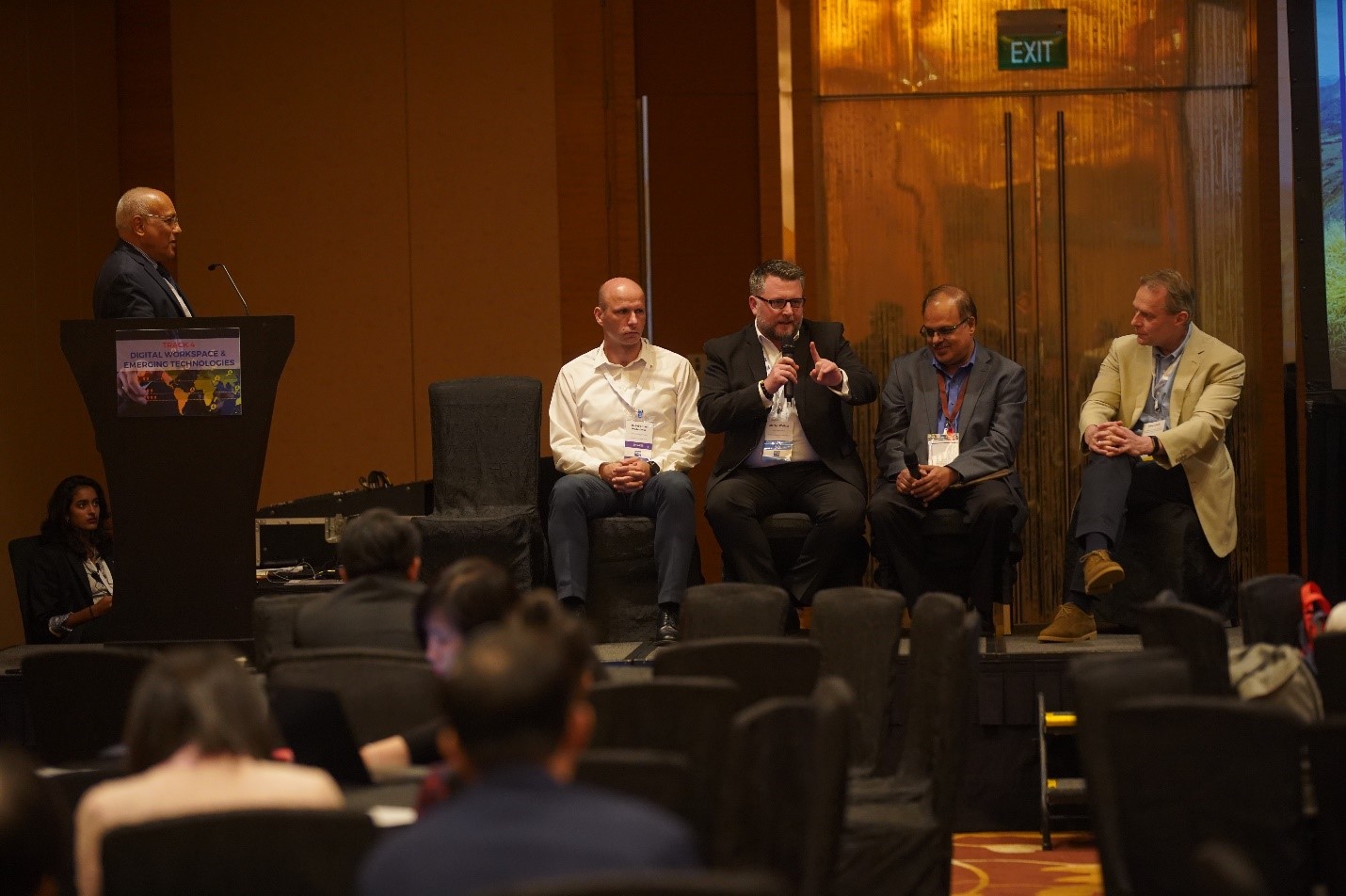 Glenn Ashe, Chief Technology Officer at the Australian Institute of Health and Welfare moderated the session.
Glenn Ashe, Chief Technology Officer at the Australian Institute of Health and Welfare moderated the session.
Barry Lowry, Government Chief Information Officer at the Government of Ireland, began the discussion with the growing application of AI. It is an undisputed fact that robots can complete tasks with greater efficiency than humans; hence, machines should be adopted to carry out repetitive and mundane work, to increase the value of human workers and improve efficiency at every stage of production.
Rama Narayanan, Deputy Chief Information Officer at the National Library Board, agreed with this sentiment but stressed the importance of retraining at every stage to ensure workers are not made obsolete. While AI eliminates human error and accelerates the production process, it still lacks the personal touch that can only be found in human interaction.
Martyn Wallace, Chief Digital Officer at the Scottish Local Government, expressed that the implementation of AI can only be successful if leaders are able to “tweak the psyche” of their staff to reassure their people that adopting technology does not make human workers dispensable, but rather serves to expand their job value. However, therein lies the cultural challenge in establishing this mindset.
Sebastian Wedeniwski, Chief Technology Strategist at Standard Chartered Bank, explained that AI can give the company a central platform that enables “instant data sharing” through the ranks, hence making communication seamless and frictionless. While leaders seem hesitant to make drastic changes due to the risks involved, the key is to “release the old world while adopting the new world” to leverage the advantages of digital disruption. He concluded with the statement that “regulation stifles innovation”.
Delegates brought up several points to combat the challenges faced in implementing AI, such as organising digital literacy programmes and setting realistic expectations for the prospects of technology in the workplace.
Glenn closed the discussion by summarising the key takeaways from the session – organisations need to “keep up or be left behind” in a world of growing automation. Digital transformation is inevitable and organisations must “adapt or die”. Ultimately, the session proved fruitful, with collaborative dialogue that delivered valuable takeaways for both speakers and delegates.
















